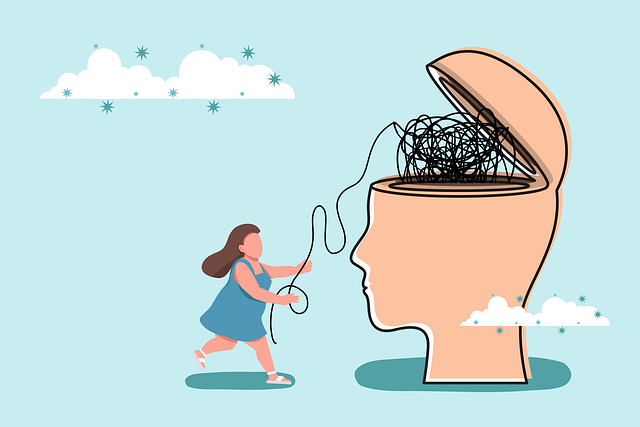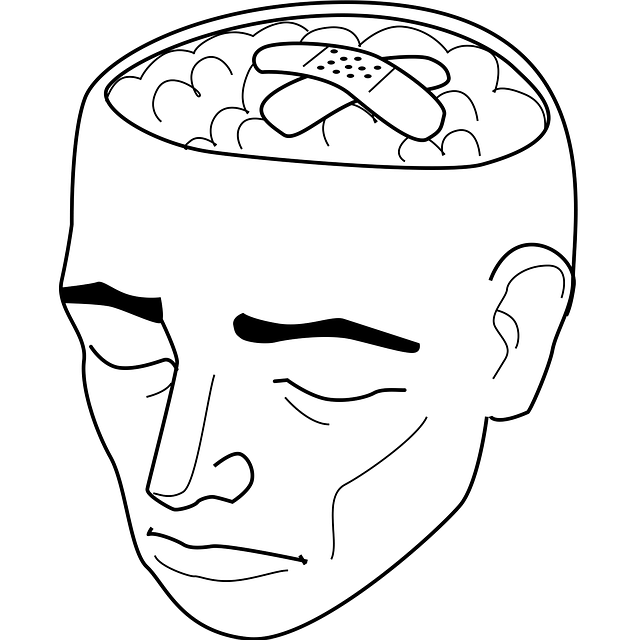Boulder's young adults face substantial stress from academic, career, social, and financial pressures, leading to mental health issues. Boulder Young Adults Therapy offers workshops teaching conflict resolution, mindfulness, and emotional well-being promotion to build resilience. These interactive sessions, combining practical tools with peer support, empower individuals to manage stress, foster community dialogue about mental health, and contribute to a healthier Boulder. Evaluating workshop success through measurable outcomes ensures the program's effectiveness in promoting long-term mental wellness.
Stress management is a vital aspect of well-being, especially for Boulder’s young adults navigating demanding academic and professional lives. This article explores how structured workshops can be a game-changer in addressing stress among this demographic. We delve into the science behind stress and its impact, highlighting the need for targeted interventions. By examining successful workshop strategies, we offer insights into designing engaging therapy sessions tailored to Boulder young adults’ unique needs, fostering resilience and improved mental health.
- Understanding Stress and Its Impact on Young Adults
- The Role of Workshops in Stress Management
- Designing Effective Stress Management Workshops for Boulder's Young Adult Population
- Engaging and Interactive Workshop Strategies
- Measuring Success and Long-Term Benefits of the Program
Understanding Stress and Its Impact on Young Adults

Stress is a ubiquitous part of modern life, particularly for young adults navigating their personal and professional journeys in Boulder. The demands of academia, careers, social lives, and often, financial responsibilities can take a significant toll on their mental wellness. Unmanaged stress can manifest as anxiety, depression, physical health issues, and even impact their ability to perform daily tasks effectively.
Workshops focused on stress management aim to equip Boulder young adults with conflict resolution techniques and emotional well-being promotion techniques to mitigate these effects. By learning coping mechanisms, mindfulness practices, and effective communication strategies, participants can enhance their resilience and overall mental wellness. These initiatives are crucial in fostering a healthier, more balanced lifestyle for the next generation in our community.
The Role of Workshops in Stress Management

Workshops play a pivotal role in stress management, especially for young adults navigating life’s challenges in Boulder. These interactive sessions offer a structured and supportive environment where individuals can learn practical tools to cope with stress effectively. Through engaging activities, expert guidance, and peer support, participants gain insights into their stress triggers, develop personalized strategies, and cultivate resilience.
Boulder Young Adults Therapy, for instance, organizes workshops focused on mindfulness, time management, and emotional intelligence, empowering young adults to manage stress holistically. Such initiatives contribute to the broader goal of enhancing mental health awareness and fostering a culture where open conversations about stress are encouraged. In addition, these workshops can be tailored to cater to specific demographics, ensuring that diverse communities have access to resources tailored to their unique needs, thereby promoting overall well-being in the community.
Designing Effective Stress Management Workshops for Boulder's Young Adult Population

In designing stress management workshops tailored for Boulder’s young adult population, it’s crucial to understand their unique challenges and preferences. This demographic often navigates a labyrinthine schedule filled with academic demands, career aspirations, and social pressures, making effective stress management a vital component of their mental wellness journey. Workshops should incorporate interactive activities that foster open discussions about stress triggers and coping mechanisms, such as mindfulness exercises or mood management techniques, to cater to diverse learning styles.
Boulder’s young adults benefit from therapy-infused workshops that seamlessly blend practical advice with emotional support. Incorporating case studies relevant to their experiences—from academic stressors to interpersonal challenges—can create a sense of community and encourage peer-to-peer learning. By fostering an inclusive environment, these workshops can empower participants with the tools they need to navigate life’s ups and downs while prioritizing their mental wellness, thereby revolutionizing their approach to stress management.
Engaging and Interactive Workshop Strategies

Engaging and interactive workshops are key to successful stress management initiatives aimed at Boulder Young Adults Therapy clients. These sessions incorporate a variety of dynamic activities, such as role-playing scenarios, group discussions, and mindfulness exercises, designed to foster active participation and facilitate deeper understanding of stress triggers and coping mechanisms. By breaking down complex concepts into digestible parts and encouraging peer-to-peer learning, these workshops not only enhance mental wellness coaching programs development but also promote emotional regulation skills that participants can apply in their daily lives.
For optimal impact, workshops should be tailored to address the unique needs and cultural backgrounds of the attendees, a strategy that aligns perfectly with healthcare provider cultural competency training goals. Incorporating culturally sensitive approaches ensures that everyone feels welcomed and empowered to share their experiences honestly, fostering an inclusive environment where emotional intelligence can flourish. This holistic approach not only benefits individual participants but also contributes to a broader community that values and prioritizes overall well-being.
Measuring Success and Long-Term Benefits of the Program

Measuring the success of stress management workshops is essential to understand their impact and long-term benefits, especially for vulnerable populations like Boulder Young Adults Therapy clients. Through regular assessments and feedback collection, organizers can gauge the effectiveness of the program. This includes tracking reductions in stress levels, improvements in emotional well-being, and enhanced coping mechanisms among participants. Qualitative data, such as testimonials and survey responses, also play a vital role in evaluating the program’s overall success, providing insights into personal growth and changes in mental health awareness.
The long-term benefits of such workshops extend beyond immediate relief from anxiety and stress. By empowering young adults with trauma support services and effective coping strategies, these programs can contribute to improved resilience and overall mental health. Regular follow-ups with participants allow organizers to track their progress, ensuring that the skills learned are being applied and maintained over time. This continuous evaluation process is key to refining the workshop curriculum and enhancing the support offered by Boulder Young Adults Therapy, ultimately fostering healthier and more resilient communities.
Stress management workshops designed specifically for Boulder’s young adults offer a powerful tool in promoting mental well-being. By understanding the unique stressors faced by this demographic and employing engaging, interactive strategies, these workshops can empower individuals to navigate life’s challenges more effectively. The success of such programs is measured not only by immediate participant satisfaction but also by the long-term benefits of enhanced resilience and improved quality of life for Boulder young adults therapy participants.














